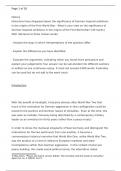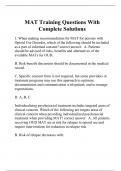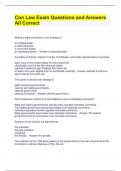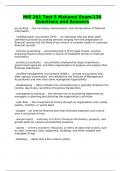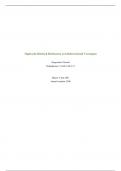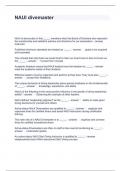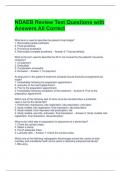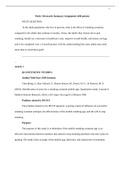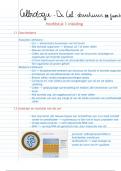Ensayo
A* A level History A2 - German Imperial Ambitions
- Grado
- Institución
Historians have disagreed about the significance of German Imperial ambitions in the origins of the First World War. What is your view on the significance of German Imperial ambitions in the origins of the First World War? [40 marks] With reference to three chosen works: · Analyse the ways in ...
[Mostrar más]
